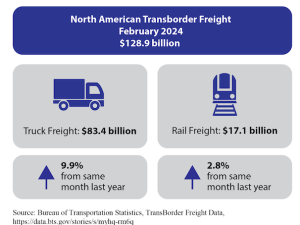In an annual survey conducted by PHH FirstFleet, a leading national provider of asset management and operations services to private truck fleets, fleet managers identified new issues and industry trends. Most notably, while fuel costs and safety risks are still top concerns for America's private truck fleets, the majority of owners and managers are putting off new 2007 engines purchases and looking to outside industry consultants to help drive down operational costs.
PHH FirstFleet's survey canvassed an array of topics relevant to the industry, including fuel economy and fleet management.
'The feedback from the survey provides insight into the key issues facing managers and will help PHH FirstFleet create practical solutions that reduce operating costs, optimize fleets, and educate drivers,' said Michael C. Lewis, president and general manager. 'Many fleet managers are looking to telematics to better understand fuel consumption, the effects of new engine emissions standards, and driver behavior.'
Survey Results Focus on '07 Engines
With the introduction of new 2007-year engine designs, 63% of fleet managers responding to the survey said they are putting off 2007 engine purchases. Forty-one percent (41%) said that they planned to postpone any new purchases until first quarter of 2007 as compared to 44% who said they planned to purchase in either the second or third quarter. Seventy-nine percent (79%) of those surveyed said they were contending with the 2007 change by stocking up on 2006 engines, which represents just over 50% of the planned orders for 2007, resulting in 7% of respondents adjusting preventive maintenance service levels to meet 2007 requirements.
In surveying fleet managers' 2006 orders for 2007 engines, the caution fleet managers exercised in the first quarter of 2007 was not as evident. While 62% of respondents ordered 2007 engines in the first quarter of 2006, only 52% ordered 2007 engines in the second quarter, which increased dramatically to 70% in the third quarter of 2006.
Confirming the average six-year replacement cycle, 51% of respondents said they replaced their fleet, indicating that 27% of their fleets were replaced in 2006 and only 7% in 2007. Respondents expect a replacement rate of 28% to continue through 2008.
Skepticism about Ultra Low Sulfur Diesel (ULSD)
When asked about the impact of the introduction of ULSD on the overall cost of fuel, respondents were equally divided. Thirty-four percent (34%) of respondents thought that ULSD had little to no impact on fuel costs, while 30% felt the ultra low sulfur diesel had at least somewhat of an impact.
In terms of what issues fleets are experiencing as a result of using ULSD fuel, 75% felt that it was too early to tell. Nearly 13% indicated lower fuel economy. Just over 7% cited fuel availability, while almost 4% felt their fleets experienced a loss in engine power.
Although most fleet managers think it's too early to tell what impact ULSD will have on fuel cost/economy, the general consensus, as seen in 1998 and 2002 emission requirements, is that ULSD will increase a fleet's cost per mile of operation approximately 2%.
When asked about what initiatives fleet managers are planning in order to gain back the fuel economy lost to ULSD regulations, nearly 24% confirmed the use of technology tools, such as telematics. This confirms PHH FirstFleet's 2006 Survey of Fleet Managers findings, which found that of the 60% of responding fleet managers who said they were adopting the devices, 83% were looking to telematics to help improve performance. At the time, 39% indicated that they wanted to optimize routes and fuel management.
API CJ-4 Oil
One of the survey's most significant findings hinged on the introduction of both ULSD and 2007 model year engines, which led to a new requirement for API CJ-4 oil. While two-thi








